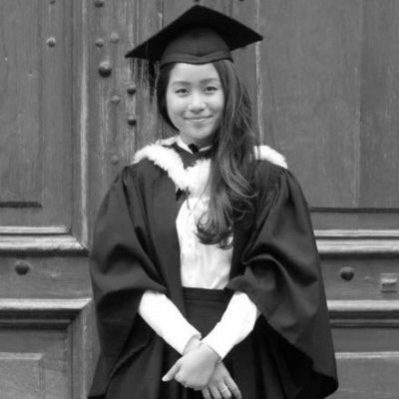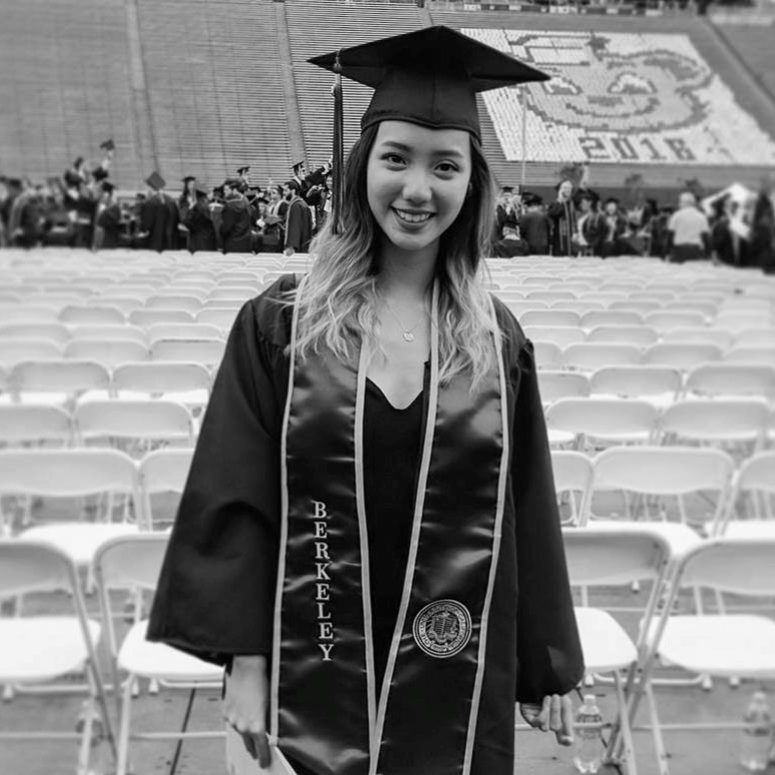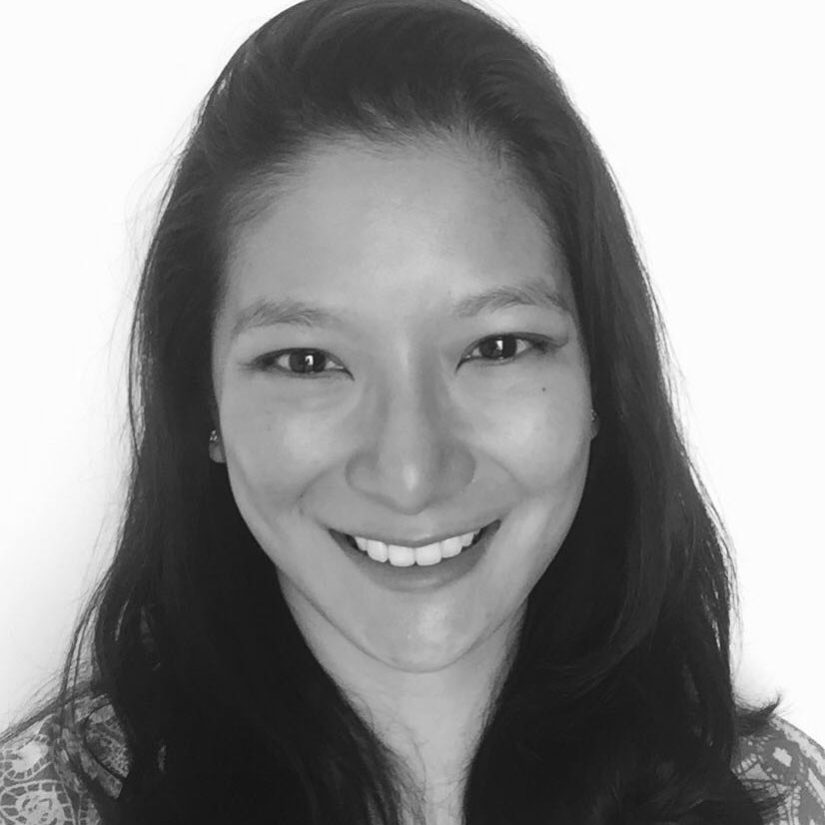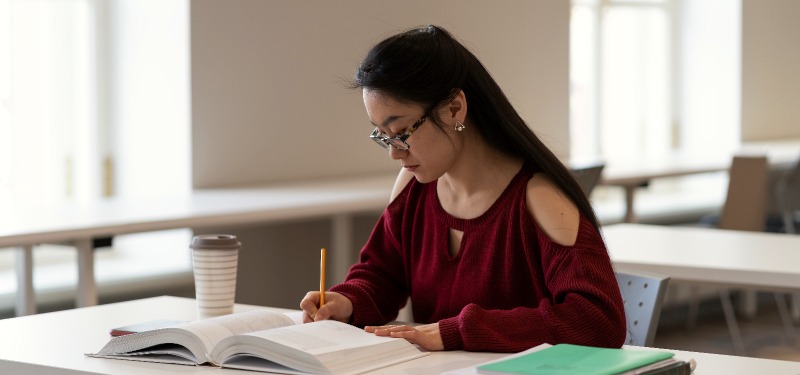Should I send my child to International School, Chinese School, the local system? Is the international school system worth it? What is the value of a Chinese school education – can my child get to Oxbridge that way? Should I consider sending my child to a Top UK boarding school and what benefit does that bring?
We interviewed some of our tutors who kindly shared with us their education pathways, experiences and opinions on what makes the best way to get to a Top UK or US university and the advantages and disadvantages of each path. From reading about those who have experienced first hand what it was like and looking back, hopefully you will better understand which is the most suited education pathway for your child!
Bianca Hoh
Law, Oxford University

I started my education journey in Villa Maria for pre-school, went to SJK(C) Lai Meng for kindergarten up to Standard 6, then went to Garden International School from Year 8 to Year 11, then Benenden School in the UK for Year 12 to Year 13. I then attended Oxford University to read Law, and now I am completing my Bar Professional Training Course in City University, London.
Going to a Mandarin-medium school was great for laying the foundations of my education. It really instilled in me a strong work ethic, and students were encouraged to be humble and goal-oriented in their learning. GIS focuses hugely on academic excellence. It rounded my education nicely by reframing education in terms of creative and independent thought, and adamantly encouraging participation in co-curricular activities whatever they may be: netball, MUN, creative writing. Benenden helped prepare me for Oxford. I was taught by several Oxbridge graduates and their support during my UCAS application was really great. We had mock interviews and external LNAT classes arranged for us, and were assigned a mentor to guide us during our entire process.
I wouldn’t have changed a thing about my education. But here are a few points of caution. Going to a Mandarin-medium school with absolutely no knowledge of the language or any other Chinese dialects is terrifying and required a lot of hard work and dual-language dictionaries. The stark social and cultural contrasts between Lai Meng, GIS and Benenden can be daunting for many. Oxford’s law course was extremely intensive. I recommend parents and students to think deeply about whether such an intensive course would be appropriate for their child or for them, instead of focusing on the prestige of the course.
I think that the soft skills that come to fruition from school and university are the most important, such as learning to learn, learning something new quickly, being able to summarise information, being able to analyse information and presenting this to people in a different way. Those are the skills that I would say have been chiseled out during my education and that I continue to use in work and in other areas of my life.
Fung Tai
Psychology, University of California, Berkeley

I went to Peter and Jane Kindergarten, then SJK(C) Puay Chai, Garden International School for secondary and A-Levels, and then the University of California, Berkeley for University.
I remember enjoying my time in Kindergarten, although I don’t have that many memories of it. Puay Chai was an interesting schooling experience especially in comparison to GIS. The general Chinese school system emphasises greatly on academics and moral discipline, and while this may not be suitable for others it was extremely beneficial for me. I felt that I learned to admire and pursue academic achievements, respect my tutors and elders, as well as intermingle with peers that do not necessarily hail from the upper/upper-middle class. GIS, on the other hand, taught me to engage in creative activities (music, art, DT, etc.) whilst applying ideas and lessons generated outside of school to my class work. Garden also gave me the necessary language and social skills to communicate with individuals on a professional level and helped bolstered a confidence within me to pursue my dreams. Berkeley taught me that the world is much larger than I initially thought and put me in contact with some seriously amazing and talented individuals. I also learned a lot about voicing my opinions and fighting for the rights of others, as well as how to work under immense academic pressure.
The Chinese school system puts a lot of importance on academic excellence, but was unfortunately reliant mostly on route learning, jumping through hoops and corporal punishment. Ironically, I feel that Garden granted their students too much freedom too young, enabling misbehaviour and a general lack of care for the future. Furthermore the social environment in a school as expensive as Garden can contribute to their younger students developing negative, egoistical behaviours. Lastly, the competitive and intense academic environment that Berkeley provides can be very demotivational and “soul-crushing”.
Of all the good and bad, I definitely will not be whom or where I am today, without these unique experiences. I cannot help but recommend this specific education path because of that. I feel that spending my younger years in a school like Puay Chai really instilled a love for academia and discipline. I worked really hard during those early years to excel and the rewards I gained from doing so only further pushed me to work harder. When I arrived to an international school however, I definitely faltered. The lack of disciplinary system, the sudden lack of homework, and the choices of so many other activities distracted me from my studies and I am saddened to report that I did not do too well during those early 2 years. However, after coming to the realisation that doing poorly in school was causing a sort of cognitive dissonance and I was not liking where I was, I started to work hard once again. The environment that was present in Garden is amazingly beneficial for people who are willing to work: the resources provided, teaching standards, encouragements for self-discovery, all added up to an incredible learning and growing experience, the way it should be (it is just a shame that not many take advantage of that). And when I finally got to University, my vision was expanded once again to the world-scale level, where the people in my classes were so incredibly capable in all sorts of different things.
Every system I have been in has lent a great hand to my abilities as an adult. I have my primary school to thank for my ambition to pursue a PhD, because I am undaunted by challenges and academia. Garden altered my world view in such a large way that I do not approach my work and life with the usual mindset, but willing to think outside the box and create my own path. Not to mention it also started my love for Psychology. Berkeley was the most humbling experience of my life, causing me to realise I am naught but a big fish in a small pond when I am in Kuala Lumpur, and the world is an ocean that I have so much to learn from. Berkeley also taught me the importance of planning and scheduling, as it was impossible to survive that school without it. Lastly, it is there that I also learned that failure is just a stepping stone to a greater future, if I choose to treat it so.
Shaun Wei Tang
Engineering, Oxford University
I attended SJKC Puay Chai 1 & 2 for my primary education. For my secondary education, I attended SMK BU (3) for Form 1-3, and Kolej Tuanku Ja’afar for my IGCSE. For my pre-u, I also attended Kolej Tuanku Ja’afar for A Levels. I then read Engineering Science at the University of Oxford.
In my primary education and when I was at SMK BU (3), I was an underperforming student. I was surrounded by students who like me, were not concerned with academic performance and did not see the importance of performing well in school. My parents tried many ways to motivate and improve me. They sent me for external courses like: mindworks, speed reading and motivational courses etc. However, to no success, there were only temporary changes in me. My parents will still nag me every now and then on finishing my homework, revising for my exams, organizing myself, the list goes on and on. They sent me for numerous tuitions but I wasn’t motivated to learn then and I didn’t take any initiative to improve.
In KTJ, I was surrounded by students who were driven and cared about studies. So initially I was just conforming to the norm. We also had ‘prep time’ 6 nights a week where we were supervised by our housemaster to sit by our tables to complete our homework. So basically, I just went about a normal routine in KTJ without going the extra mile. With just these 2 minor changes I became a straight A student within the first 2 terms of my time there. I started to enjoy scoring well in exams, it gave me a sense of accomplishment, it made me realise that it actually isn’t that hard and it didn’t turn me into a book worm or a nerd with no social life. I started to enjoy giving my parents a peace of mind, I started to realise that there is no shame in making small sacrifices to please our parents. It is honestly the least that we can do.
Definitely, I feel that having attended a government school first gave me the perspective of how blessed I am when I moved to an international school. It also taught me to be down to earth, respectful and grateful. In addition, because I attended a chinese primary school and a government secondary school, I am trilingual. I also feel that as important as the primary school years are, it’s still not too late to change and improve in high school, so changing into an international school for secondary is still not too late.
I am glad that my parents decided to take me on this journey and it is one that I will recommend to other parents and students.
The mindset that I developed in Kolej Tuanku Ja’afar carried me through to where I am today and for that I am eternally grateful to my parents. I now thrive to feel accomplished and fulfilled by keeping myself busy at all times. This helps me strive to fulfil my potential in any way possible.
Tamara Lim
Materials Science, Oxford University

I went to Sayfol International School from Year 1 – 3. Then I moved to Alice Smith International School from Year 3 – Year 9. For secondary and high school, I studied at Wycombe Abbey Independent All-girls’ Boarding School in the UK and later on went on to study Materials Science at Oxford University. For my 4th year, I went over to MIT in Boston to complete my Masters research in Biomaterials.
My education was pretty much international school route and onto boarding school at 13, the most expensive route you could have to get to where I am today. It provided me copious opportunities in terms of exposure to extra-curricular (like drama, music and sport) which I utilized fully, and helped me to really enjoy the full breadth of learning in all areas. I was able to go to Drama festivals, participate in athletics and swimming competitions, and the excellent music teaching helped me achieve until Advanced Piano Diploma at Wycombe – all these extra-curricular activities contributed towards my confidence of knowing with anything I put my heart into, I could excel at. For some international school would be relaxing but for my personality, I couldn’t settle down and take it easy so for me everything was a type of challenge no matter how big or small. So it also really depends on personality if you need external pressures to drive your child to work hard. At Wycombe Abbey, what was amazing was the teaching – teachers were very passionate about what they taught even though they could easily take up a more lucrative job given most of their degrees were from top universities. Another inspiring fact was that the students around me were so incredibly bright, some even had photographic memory, many scored 100% in most exams, and this challenged me to work harder – although no matter how hard I worked, there were some that were so brilliant (yet so down to earth in personality), it was slightly demoralizing I could never reach their standard. In my year at Wycombe 23 out of 80 of us got into Oxbridge.
When I was going through it, I did not realize how privileged I was to have the luxury of good sports facilities, a myriad of afternoon school activities, and just being in a very clean and perfect environment. I took a lot of it for granted and I’m sure somehow I was slightly spoilt and pampered – at some point I must have carried that attitude. Additionally I did not get to learn Mandarin which I could have done via the Chinese school route. Wycombe can be also demoralizing if put in an environment with incredibly high achievers – the girls cried if they got B’s, and indeed an 80% felt you weren’t performing. This can be a small blow to one’s confidence as you consistently face the pressure of not being smart enough even though you are in the top 1% of the population already. I’m also a bit of a banana – I haven’t been immersed in the Chinese culture nor have I mastered any Chinese dialect, my Malay is not great and so in terms of belonging to Malaysia, even though I am adaptable internationally (I have lived in many countries) I don’t quite fit in anywhere completely. I need to ask for help when it comes to documents related to the Malaysian government / authorities so I am not as savvy in this area.
Alice Smith was quite relaxed but I do feel students shouldn’t be pushed too hard at a younger age or they eventually burn out – I felt I reached that point in 2nd year at University and that was lasting quite long already in terms of pushing myself. In that sense I would recommend a more relaxed route in the early years to foster the love of learning rather than just achieving. If you can afford it I would say international school would be good, if you can supplement some extra classes in Mandarin, and go to boarding school only at 16+ but this is just for my personality. I felt going at 13+ was a bit premature even though I may not have achieved as much as I did if I didn’t go. Some children really like the idea of going to boarding school early though. I felt being that far away from home was unnatural, and only seeing my parents 3 times a year was heartache for me. However by 16, I finally felt I was in the right place at boarding school. The only set back for going later is that it is much much harder to get into these top UK boarding schools.
I have been to a top UK boarding school, UK and US university, so my experience directly applies to what I am coaching. Additionally all the soft skills apply such as communicating to parents, giving talks at schools, and in particular a strong command of English. Being abroad in so many places and different environments also helps me deal with all sorts of cultures and personalities.












